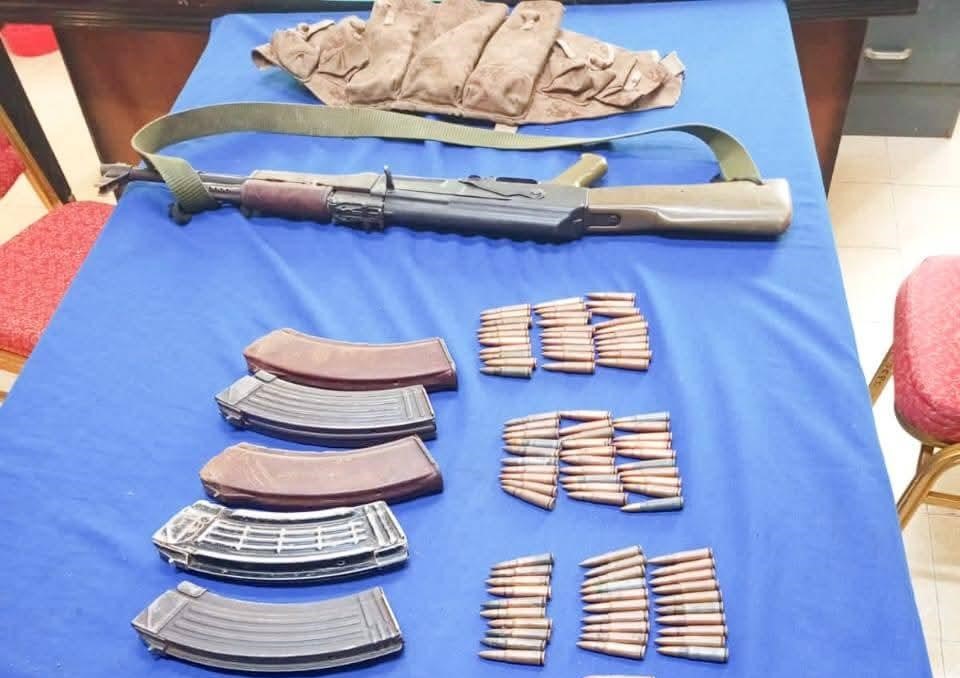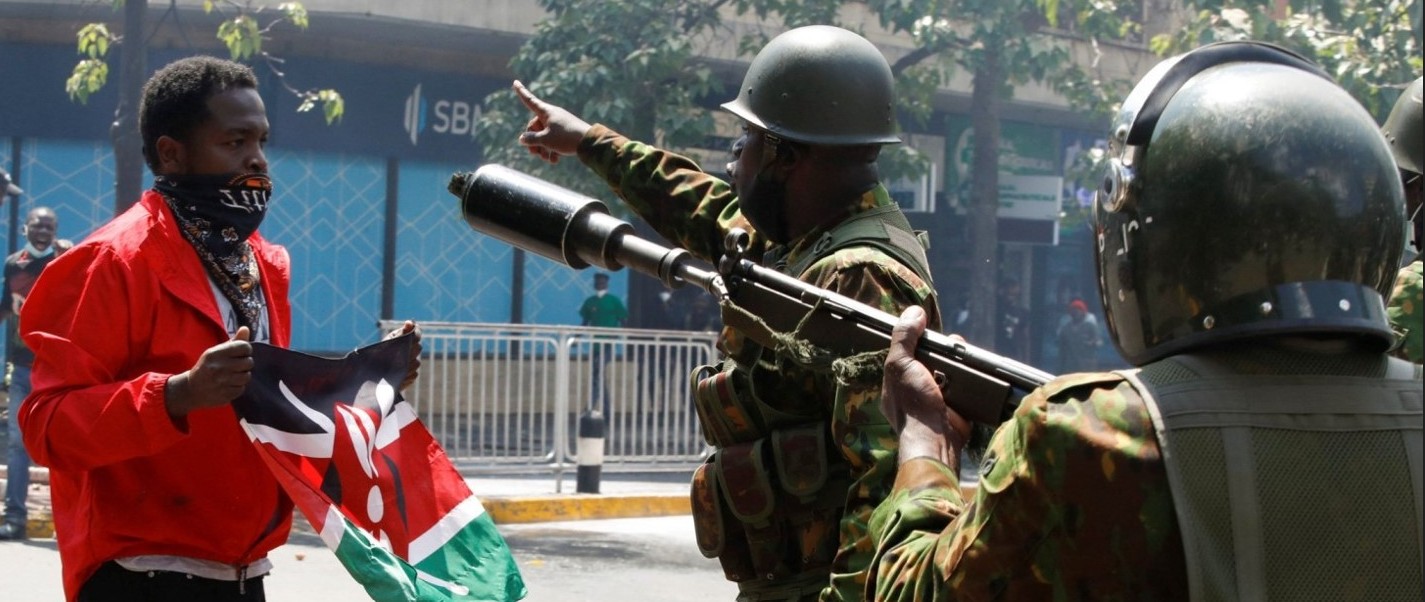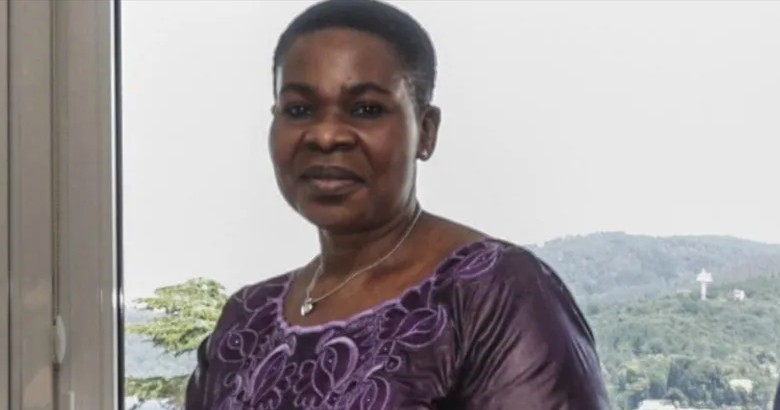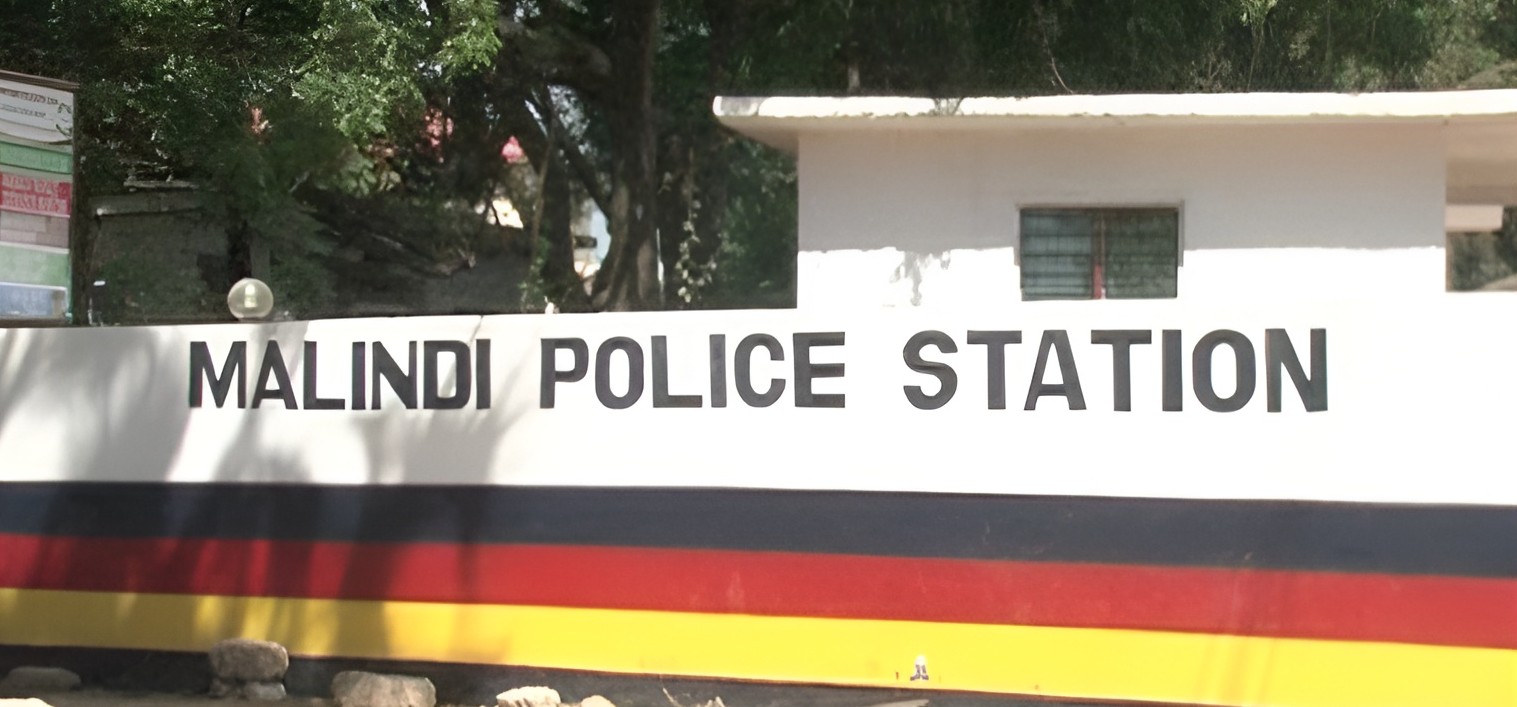10th Street: Eastleigh's ‘little Ethiopia’ where beverage lovers enjoy special coffee
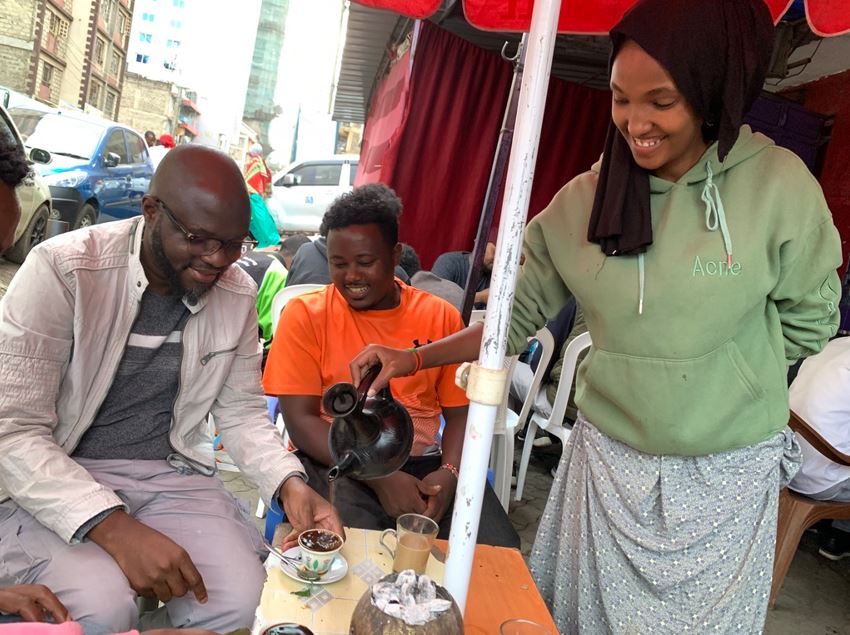
Three coffee houses serve as booking offices for buses bound for the Kenya-Ethiopia border town of Moyale.
The song Bulloo by Oromo musician Yosan Getahun blares in the background as patrons in a fully packed street coffee shop in Eastleigh chat animatedly in Afaan Oromo, a language spoken by the largest ethnic group in Ethiopia, the Oromo.
It’s one out of at least 20 Ethiopian coffee shops that attract hundreds of beverage lovers daily, mainly Ethiopians catching up on news about life in Kenya, memories of what they left back home, and updates on what is happening there.
More To Read
- Kenya to open coffee auctions to global buyers to boost farmers' earnings, Kagwe says
- Vibrant atmosphere as Eastleigh comes alive as Ramadan draws to a close
- Camel milk: The superfood you should be drinking
- Ethiopia’s coffee export revenue hits $988 million, surpassing targets
- Desert gold: Camel milk makes its way to big malls’ shelves
- Exploring new horizons: What upcountry visitors say about shopping at Eastleigh
All this is happening on Eastleigh’s 10th Street in Nairobi. The cold season has started and there is a lot of demand for bunna, or brewed Ethiopian coffee.
One of the people serving coffee at the shop is 23-year-old Hawi. She is among the many Ethiopian coffee girls who migrated to Kenya for a safer or better life or seeking to migrate to a third country, mostly South Africa, North America, or Europe.
“10th Street is like the nerve centre of all Ethiopian activities in Kenya. It’s usually the first stopover for Ethiopians arriving in Nairobi. Every day, new Ethiopians arrive on 10th Street, either to try out life in Kenya or to move to a third country. Some are political exiles,” Kedir Nagessa told me as we sipped some hot bunna coffee.
Three coffee houses serve as the booking offices for buses bound for the Kenya-Ethiopia border town of Moyale. Before the 503km Isiolo-Moyale highway was built, travellers to Moyale would use lorries, sharing space with livestock and farm goods from the highlands of Ethiopia. But today, nine buses ply the route.
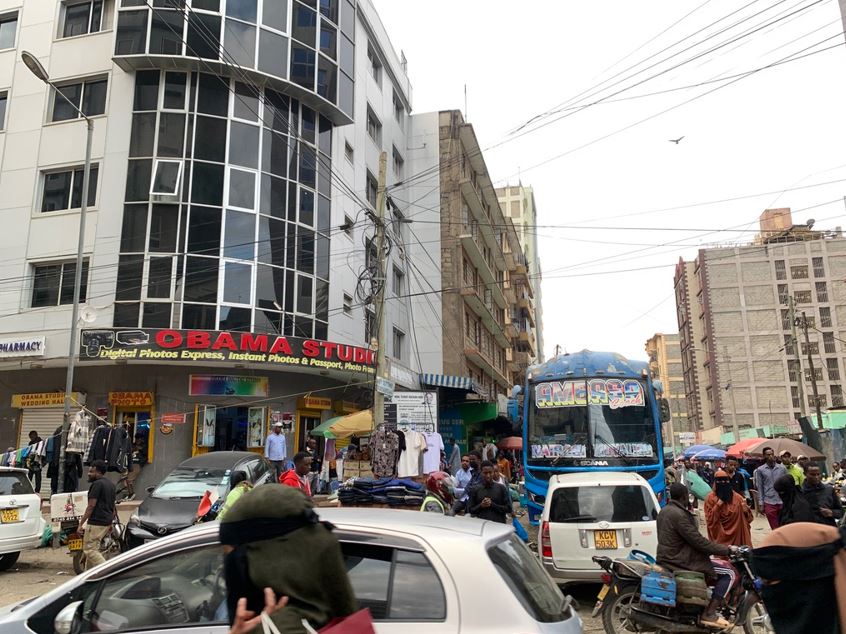 A view of a busy 10th Street at the Second Avenue junction in Eastleigh. (Photo: Yassin Juma)
A view of a busy 10th Street at the Second Avenue junction in Eastleigh. (Photo: Yassin Juma)
“Come see for yourself. It's only Sh2,500 to the border,” said Chami, a 32-year-old tout for the Moyale-bound Royal Express bus.
He was packing bales of clothes and shoes bought from malls in Eastleigh on a bus heading to northern Kenya and perhaps beyond for Ethiopia. It’s a competitive route with each bus company trying to outdo the other with offers like phone charging ports, free Wi-Fi, and LCD screens for playing movies and music.
“You see how comfortable the seats are. We even have CCTV so your luggage is safe,” the tout said.
Change
Over the years, 10th Street has changed a lot. Twenty years ago, most buildings were only two storeys high, but the area now has several multi-storied buildings where many, including Ethiopians, have set up businesses.
One of the businesses is the famous Obama Studio and wedding hall owned by an Ethiopian trader. An almost life-size photo of the famous Ethiopian musician Teddy Afro can be seen from the entrance. Inside are framed photos of Ethiopian weddings. There are posters advertising an upcoming Habesha night at Asmara Restaurant. Amharic music can be heard from inside as customers line up waiting to be served.
“Many Ethiopians who were going through the process of third-country relocation to Europe or North America must have used Obama’s photo services. They also do Green Card photos,” Thadeus, an Ethiopian who now lives in Edmonton, Canada told The Eastleigh Voice.
While some have been lucky to relocate, not all Ethiopian refugees seeking relocation over the years have been successful in migrating to the USA or Europe. Some have been on the waiting list for over 20 years while others have opted to make Kenya their home.
Eshetu Bassa, an Ethiopian businessman, has run a shop along Eastleigh’s 10th Street for over 15 years. He has dealt with jewellery, Ethiopian Arabica coffee, and Ethiopian souvenirs. Over the years, he has seen other Ethiopians resettle in a third country.
“The Ethiopian woman who used to supply me with the silver jewellery went abroad so I stopped the business. I now sell Ethiopian spices, cereals, sheero, barbare, ejera and itan incense, and traditional Habesha dressing. They are popular with my people during festive seasons,” he said.
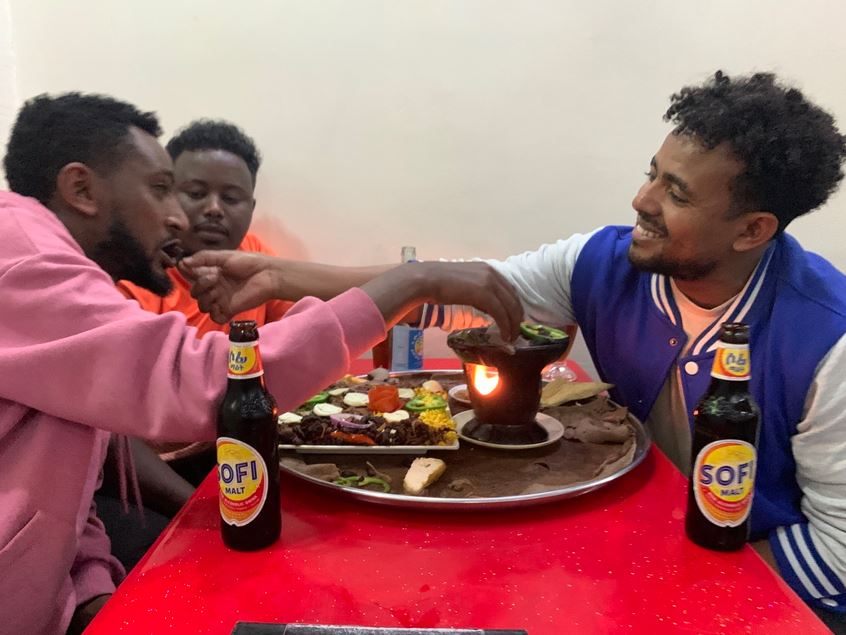 Ethiopians enjoying a meal of Injera and Shekle Tibs do the Gursha tradition of feeding each other to express love and brotherhood at 10th Street in Eastleigh. (Photo: Yassin Juma)
Ethiopians enjoying a meal of Injera and Shekle Tibs do the Gursha tradition of feeding each other to express love and brotherhood at 10th Street in Eastleigh. (Photo: Yassin Juma)
But what worries Eshetu are the regular sewage bursts on 10th Street.
Mekonnen Beyele is another Ethiopian who runs a shop opposite Eshetu’s. He sells Habesha and Oromo traditional dresses, Arabica coffee, cereals, and spices. He settled on 10th Street 13 years ago after arriving from Addis Ababa.
“We sell only the best quality of Ethiopian coffee beans. Mine is the only shop that sells Ethiopian Dereja or Qibe butter. It’s quite expensive, going for Sh2,000 a kilo,” he said.
Young Kenyans seeking to have a taste of the famed Ethiopian cuisine also frequent 10th Street where there are at least 15 Ethiopian restaurants.
“The world is becoming one global village. We are interacting more. I see many young Kenyans coming to my restaurant to try out Ethiopian dishes like injera and shekle tibs and share them on their Instagram or TikTok. It’s become fashionable for young Kenyans to eat Ethiopian dishes,” said Murtesa Fayiso who has been running the popular Murtesa Restaurant since 2022, seven years after he arrived in Nairobi as a teenage refugee seeking political asylum.
As I end my tour of 10th Street around 9.40 pm, there are no signs that activities on these streets will end any time soon. The last buses to Moyale have just left. And the street goes into its most popular social activity — khat chewing.
“10th Street is the main muguka market in Eastleigh,” Adan, an Ethiopian khat seller known for his “digital muguka,” told The Eastleigh Voice.
The Ethiopian coffee girls have changed shifts now, serving the night patrons who are mainly khat chewers, taxi drivers, boda boda riders, and security guards.
The first bus from Moyale is expected to arrive at midnight and this means newer arrivals from Ethiopia to 10th Street.
“10th Street never goes to sleep. It’s a 24-hour economy,” said Adan.
Twenty-three-year-old Ethiopian coffee girl Hawi pours hot delicious and aromatic bunna into the writer's cup during an interview along 10th Street in Eastleigh. (Photo: Yassin Juma)
Top Stories Today
- Lecturers told to call off strike as government cites court order
- "This is why I’m resigning": Githurai MCA cites broken promises, delayed projects
- Nairobi splashes Sh863 million on travel as development funds stall
- Police arrest suspected bandit, recover AK-47 in Garissa shootout
- Kenya to implement instant fines for traffic violations to curb road deaths
- Civil society warns of authoritarian drift under Ruto’s Kenya Kwanza regime

